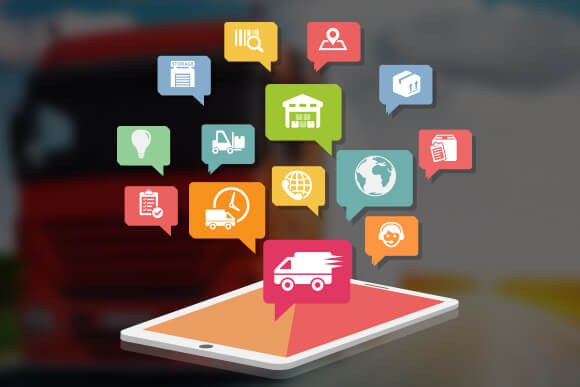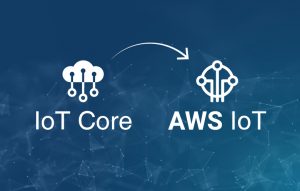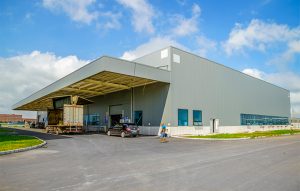As the world stands on the brink of an “Internet of Things” expansion, the expectation is high that it will give rise to a wealth of new possibilities. Once IoT spreads as we envisage, there will be a globally accessible network of things with countless business users, consumers, and almost everything connected to each other enabling a hugely efficient world. It looks like an extremely awesome concept because the connected world is able to do things quickly without wasting any time.
We all know that IoT is not a single technology, the concept is so far-reaching. The future technology will be more astonishing with its science-fiction like attributes. Everything will be connected – what’s more, we will even see the street lights are being networked! High level of integration and interoperability will be anticipated with the new IoT developments. To a large extent, the future of the Internet of Things will be destined to be supported by IPv6 and as a result of the global adoption of IPv6 in the coming years, it will be crucial for the successful development of the IoT in the future.
Major IoT Forecasts for 2020
• By 2020, the human population will grow to 7.6 billion with 50 billion devices connected to the Internet. – Ericsson
• There will be nearly 26 billion devices on the Internet of Things by 2020. – Gartner
• In 2010, the number of everyday physical objects and devices connected to the Internet was around 12.5 billion. This figure is expected to double to 25 billion in 2015 as the number of more smart devices per person increases, and to a further 50 billion by 2020. – Cisco
• More than 30 billion devices will be wirelessly connected to the Internet of Things (Internet of Everything) by 2020. – ABI Research
IoT in logistics and fleet management Industry
Interestingly, the history of IoT is associated with logistics as tracking of vehicles and goods is a common practice since 1980s. IoT is redefining next generation logistic and fleet management with its ubiquitously connecting nature.
Therefore, the logistics and fleet management industry is going to be a big player in IoT revolution. In logistics, the supply chain is involving with various stakeholders which include manufacture, logistics, retailor, etc. In such a scenario, the concept of interoperability is getting much prominent because there is a high utility of inter connected devices and things in the industry which will enable better communication and will produce authentic data. The industry will achieve new heights as the collecting, sharing, and acting on real time information is easier with such increased connectivity.
At the moment, the cloud-based GPS and RFID technologies can be considered as the pillars of IoT as they are efficiently connected to the supply chain. Through these technologies, a product becomes a part of Internet of Things even before it is put on the trucks. RFID technology comes as a big help for the logistic managers to control and track products while GPS enables the transportation managers to have real-time information on routes and drivers of their fleet. The devices with sensors installed in trucks can give an insight on overall driver behavior, speed of the vehicle, idle hours, vehicle performance, route, etc.
Commonly, the fleet management is involved with fleet dispatch such as scheduling, load management, driver and vehicle tracking, and effective routing. With the help of a software solution, these things have been automated already. However, with the IoT revolution industry can expect much more than that. Improvement in performance through automated processes, image-based shipment tracking, video capture etc., -all these will provide much insight into their business. The data received from IoT will help in adding more value and opportunity to their business. For fleet operators, investing on IoT connectivity and highly integrated devices will offer a competitive edge as it reduces the overall costs and improves performance.
The combination of ubiquitous global communications and spread of intelligent machines, sensors and devices enables meaningful data and derive meaningful insights. This is much desirable in an environment that demands absolutely efficient logistics and fleet management.
Applications in logistics and fleet management
The software solutions provides an environment to the logistic and fleet management companies to automate daily logistics processes, trip planning and manage the drivers and fleets. The opportunities go beyond as the companies can move their daily operations into the cloud and can remotely track their fleet 24/7. Other than this, they can have their eyes on the ground during pick-up and delivery and monitor operational costs and fleet mileage which provide them a lot of insight on the work they do on a regular basis.
How IoT is going to influence the future business
For a logistic company, its drivers and fleet are of utmost significance and so for handling matters related to them it is not so appropriate to rely heavily on company’s software solutions only. Here, IoT can be a champion as they can turn the drivers and fleet as a vital part of its operations. With the widespread IoT, the companies can stay current on receiving, processing real-world data wirelessly and responding to them in a cost-effective manner.
The overall data produced on industry-wide provides large scale awareness and deeper insights into processes which further empower the business. The vehicles equipped with GPS, in-vehicle streaming camera, driver mobile apps make things extremely easier for the overall operations. The system enabled by the IoT is truly beneficial because the operators and the drivers can have real-time communication on pickup and delivery and the instructions can be constantly communicated to the drivers while they are on the wheel.








